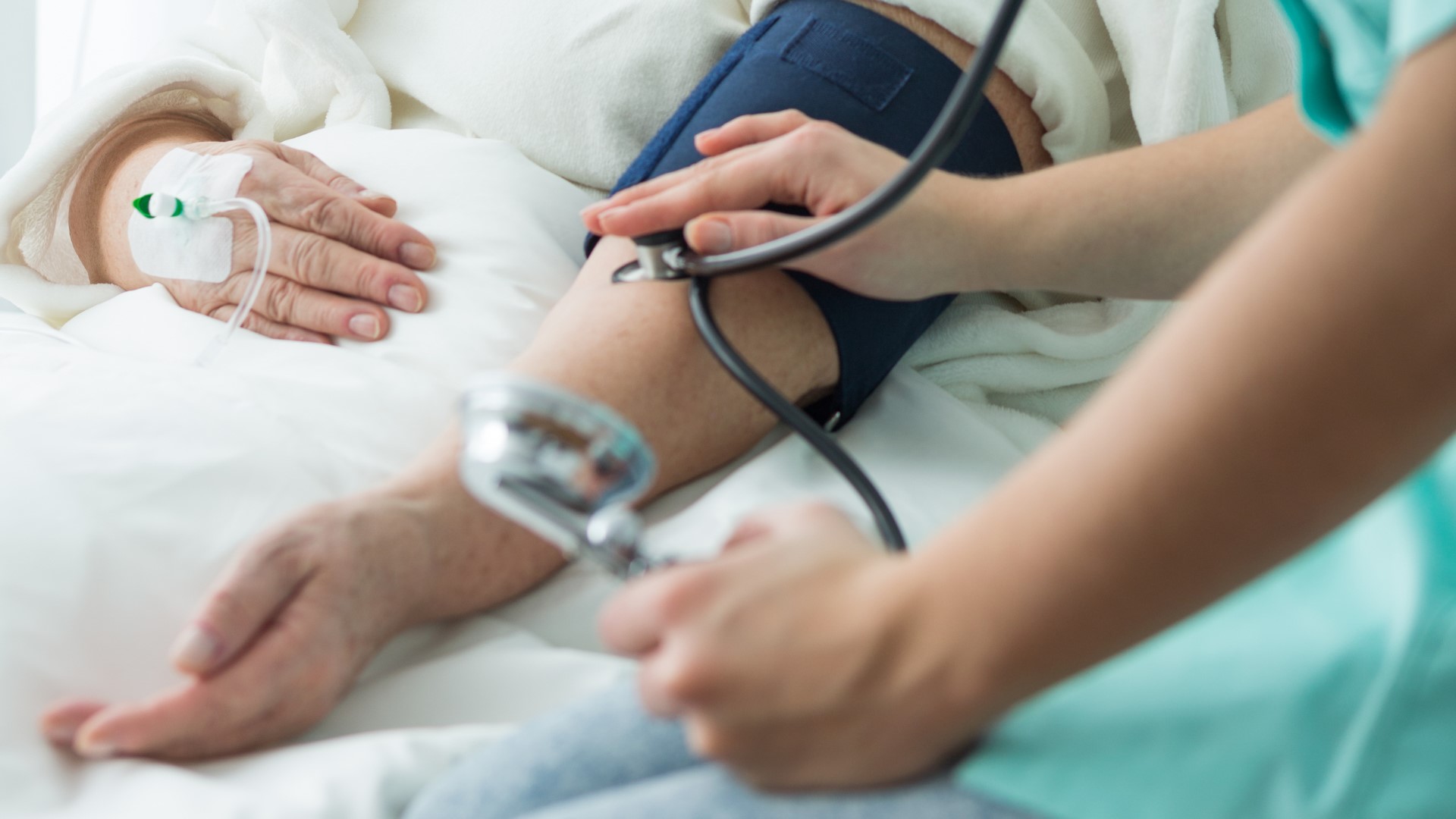
Hypertensive Crisis can occur when your blood pressure spikes to a dangerously high level. This medical emergency requires immediate attention and is life-threatening. Let us find out what constitutes a hypertensive crisis, its symptoms, causes, and the necessary actions to take when experiencing a blood pressure emergency.
Understanding Hypertensive Crisis
A hypertensive crisis occurs when blood pressure reaches severe levels, posing an imminent risk to health. This condition is categorized into two types: hypertensive urgency and hypertensive emergency. Hypertensive urgency involves severely elevated blood pressure without acute organ damage, while hypertensive emergency involves both severely elevated blood pressure and evidence of acute organ damage.
Recognizing the Signs and Symptoms
- Severe Headache: A sudden, intense headache that feels different from usual headaches could indicate a hypertensive crisis.
- Severe Anxiety: Heightened feelings of apprehension or unease, especially when accompanied by other symptoms.
- Shortness of Breath: Difficulty breathing, especially if it comes on suddenly or is severe.
- Nosebleeds: Unexplained or severe nosebleeds, particularly if they are recurrent.
- Severe Chest Pain: Intense chest pain, especially if it radiates to other parts of the body or is accompanied by other symptoms.
Additionally, symptoms such as severe fatigue, vision problems, and confusion can also signify a hypertensive emergency. (Mayo Clinic, 2022)
Understanding Blood Pressure Readings
To understand the severity of a hypertensive crisis, it’s essential to interpret blood pressure readings accurately. It can be defined as:
- Normal: Systolic less than 120 mm Hg and diastolic less than 80 mm Hg.
- Elevated: Systolic between 120-129 mm Hg and diastolic less than 80 mm Hg.
- Hypertension Stage 1: Systolic between 130-139 mm Hg or diastolic between 80-89 mm Hg.
- Hypertension Stage 2: Systolic 140 mm Hg or higher or diastolic 90 mm Hg or higher.
- Hypertensive Crisis: Systolic over 180 mm Hg and/or diastolic over 120 mm Hg.
(Heart.org, 2023)
Causes of Hypertensive Crisis
Various factors can contribute to a hypertensive crisis, including medication non-compliance, kidney disease, adrenal gland tumors, recreational drug use, and certain medications such as oral contraceptives or over-the-counter cold remedies. Stressful situations, such as a medical emergency or significant life event, can also trigger a hypertensive crisis in susceptible individuals.
Actions to Take During a Hypertensive Crisis
In the event of a hypertensive crisis, immediate action is crucial. Call 911 if the patient experiences severe symptoms such as chest pain, shortness of breath, severe headache, or confusion. Emergency medical services can provide timely treatment and transport to a medical facility equipped to manage hypertensive emergencies.
While awaiting emergency assistance, individuals should take the following steps:
- Stay Calm: Panic can exacerbate high blood pressure. Focus on staying calm and taking slow, deep breaths to help lower stress levels.
- Rest: Find a comfortable position, such as sitting or lying down, to rest and alleviate any discomfort.
- Monitor Blood Pressure: If possible, monitor your blood pressure regularly while waiting for help to arrive. This information can assist emergency responders in assessing the severity of the situation.
- Avoid Certain Activities: Refrain from engaging in strenuous activities or consuming caffeine or alcohol, as these can further elevate blood pressure.
Follow Medical Advice: If you have a prescribed medication for high blood pressure, follow your healthcare provider’s instructions regarding dosage and administration. (WebMD, 2023)
Preventing Hypertensive Crises
While hypertensive crises can occur suddenly, certain lifestyle modifications can help reduce the risk of high blood pressure and its complications. These include maintaining a healthy weight, following a balanced diet low in sodium and saturated fats, engaging in regular physical activity, managing stress effectively, limiting alcohol intake, and avoiding tobacco use.
When to Go to the ER
A hypertensive crisis is a serious medical condition that requires prompt intervention to prevent potentially life-threatening complications. By understanding the signs and symptoms of a hypertensive crisis, interpreting blood pressure readings accurately, and taking appropriate actions, individuals can mitigate the risks associated with this condition. Additionally, prioritizing preventive measures and adopting a healthy lifestyle can help reduce the likelihood of hypertensive crises occurring in the first place, promoting overall cardiovascular health and well-being.
Works Cited
Mayo Clinic. “What Are the Symptoms?” Mayo Clinic, Mayo Foundation for Medical Education and Research, 3 Aug. 2022, www.mayoclinic.org/diseases-conditions/high-blood-pressure/expert-answers/hypertensive-crisis/faq-20058491.
Heart.org. “Understanding Blood Pressure Readings.” www.Heart.Org, 17 Oct. 2023, www.heart.org/en/health-topics/high-blood-pressure/understanding-blood-pressure-readings.
WebMD. “Symptoms, Causes, Treatments, Diagnosis, and More.” WebMD, www.webmd.com/hypertension-high-blood-pressure/hypertensive-crisis
